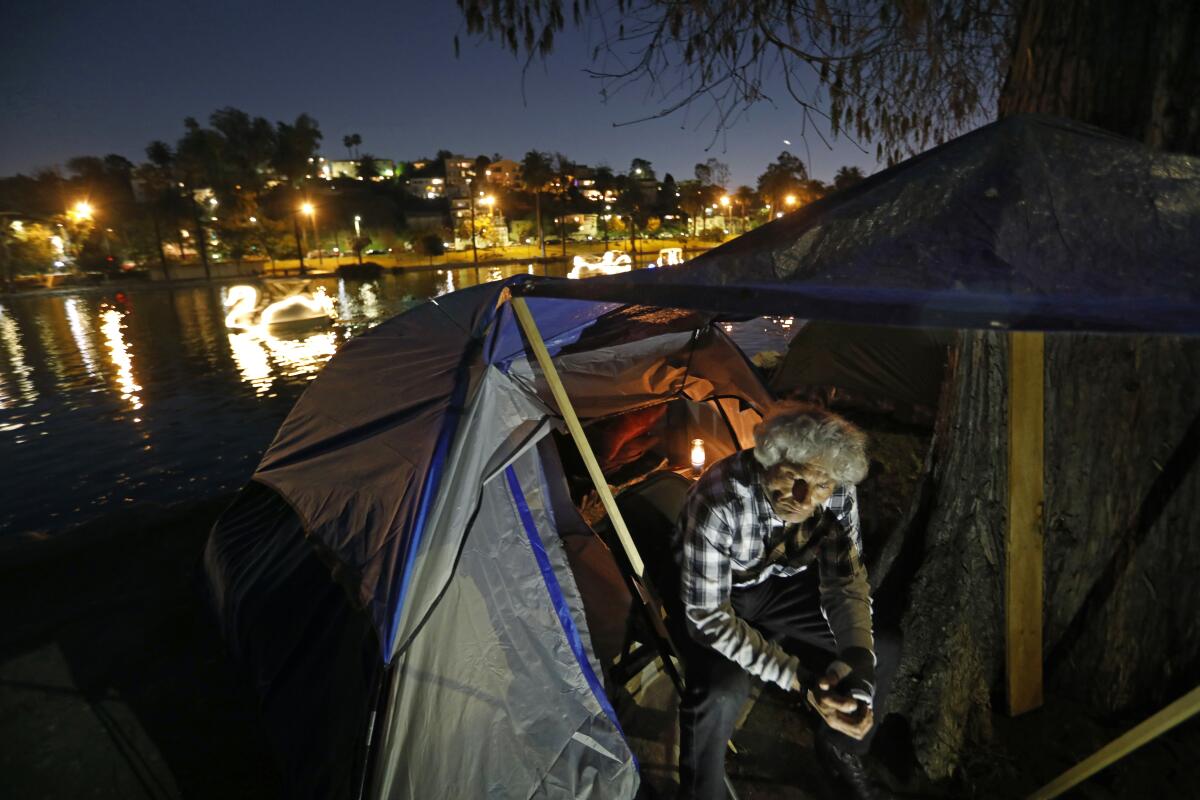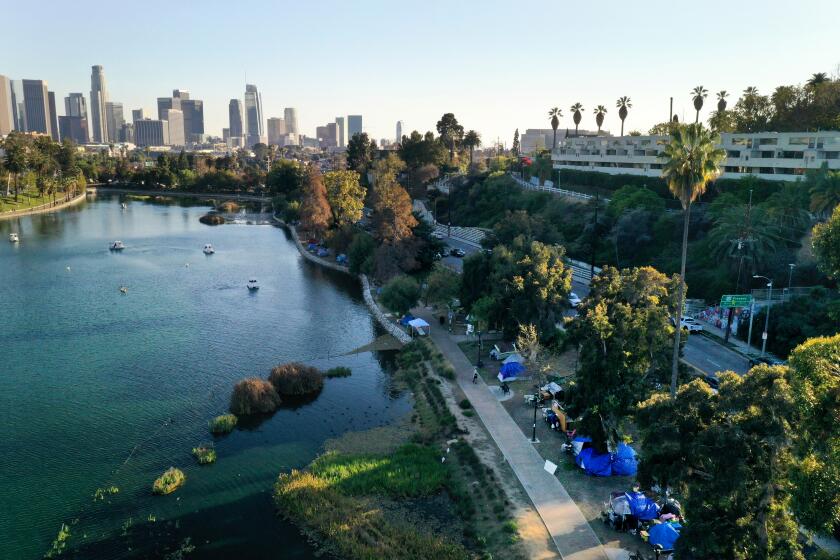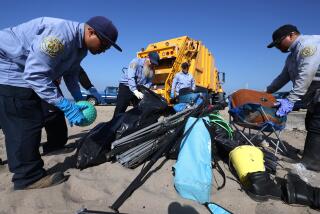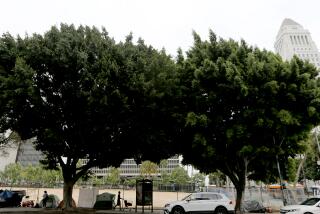Everything you need to know about the Echo Park homeless encampment

- Share via
A large homeless encampment on the banks of the landmark Echo Park Lake has emerged as a flashpoint in Los Angeles’ crisis of how to treat the unhoused.
Over the last year, the encampment has evolved into a commune-like society with a shared pantry, a garden, a veneer of self-policing and a tenuous grasp on basic sanitation. It has divided the Echo Park community and became a case study of the conflicts arising in neighborhoods across Los Angeles over the rights to public spaces and the competing interests of the housed and unhoused.
The city of Los Angeles plans to clear a large homeless encampment at Echo Park Lake on Thursday and close the park for renovations, sources told The Times.
This is all happening in one of L.A.’s most iconic settings.
The lake was once a movie backdrop for Charlie Chaplin and other Hollywood pioneers, the setting for the temple built by the notorious evangelist Aimee Semple McPherson and the site of Jack Nicholson’s famed boating scene in the movie “Chinatown.” The hills around the lake have been a hot spot for gentrification, as the area transitions from a predominantly blue-collar Latino community, also favored by artists and progressives, to one that’s now sought out by wealthier and whiter individuals.
Officials now appear intent on removing the camp sometime this week. Here is what we know about the showdown from the pages of The Times:
What do we know about the encampment?
Residents say that for as long as they can remember, the park has always had a few people sleeping on the grass. But the homeless population began to increase in 2019 and continued through the pandemic.
In January of last year, police and sanitation crews met resistance from park dwellers and their advocates, who protested a cleanup as an attempted eviction.
In a letter to City Councilman Mitch O’Farrell, the “constituents of Echo Park Lake” proposed a “community contract.” They pledged to keep the park clean and be respectful of their housed neighbors. In return, they demanded an end to ticketing, nighttime raids and frequent cleanups.
A homeless encampment at Echo Park Lake has become a symbolically fraught case study of the rights to public spaces
Since then, police have kept a hands-off posture. Park rangers have refrained from ticketing but, residents say, intermittently harass them by shutting restrooms, cutting nighttime lighting and denying access to trash bins. In an email, a spokesperson for the Recreation and Parks Department denied that access to restrooms and trash bins has been blocked and said that “instances of vandalism have required some lighting be secured for safety reasons and if broken is remedied as quickly as possible.”
As of last week, more than 170 tents or makeshift structures were bunched at the north end of the lake and spread along its western shore.
What are the battle lines of the debate?
Some nearby residents, complaining of drug use, crime and mounds of detritus, have garnered more than 4,000 signatures on an online petition asking the city to remove the camp.
“WE — THE CITIZENS OF ECHO PARK — WILL NO LONGER TOLERATE OUR LAKE BEING DESTROYED!” it said.
In February, Riley Montgomery, a 36-year-old documentary filmmaker, posted a petition on Change.org outlining the residents’ grievances and asking others to join in pressuring public officials to provide housing and remove the tents.
Montgomery said he was motivated by comments of homeless people and their advocates suggesting that the campers had a right to live in the park until everyone was provided permanent housing. He posted a YouTube video portraying several people in the camp harshly as violent and shiftless. He is now making a second video.
Homeless advocates defend the camp as a legitimate exercise of the right of people who have nothing and are trying to make their lives better by living near bathrooms and water fountains. They also have stepped in to provide aid — in a way that they contend the city and homeless services providers do not.
What is next?
A source with direct knowledge of the process told The Times that the city plans to clear the encampment Thursday, fence the park and close it for renovations. City officials have refused to confirm that.
Outreach workers have been registering as many people living in the park as possible and taking them to hotels being rented by the city for homeless people.
The plans are subject to change.
In recent weeks, outreach workers from homeless service agencies and the Los Angeles Homeless Services Authority have made a concerted effort to use available rooms in hotels for people living by the lake.
A spokesperson for the Los Angeles Homeless Services Authority told the Times that on Monday and Tuesday, outreach workers from the agency moved 44 people from the lake into hotels being rented by the city for homeless people.
More to Read
Sign up for Essential California
The most important California stories and recommendations in your inbox every morning.
You may occasionally receive promotional content from the Los Angeles Times.













